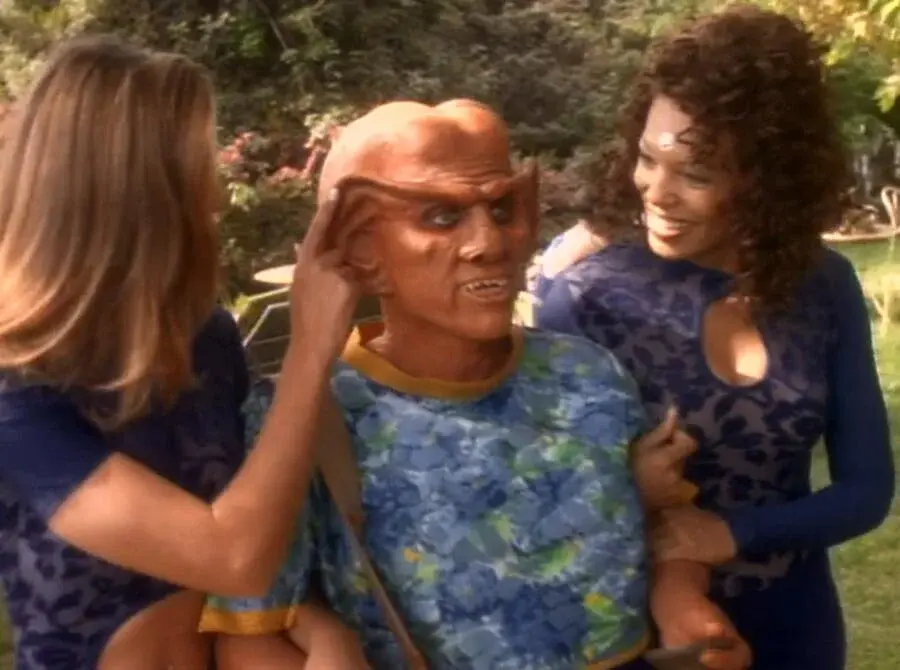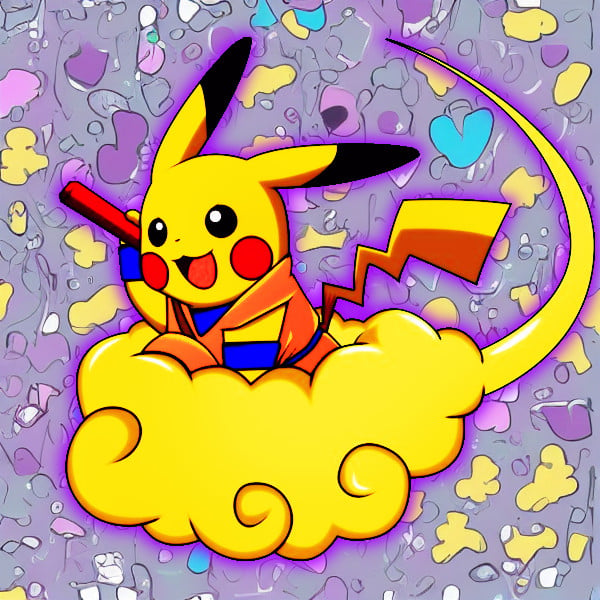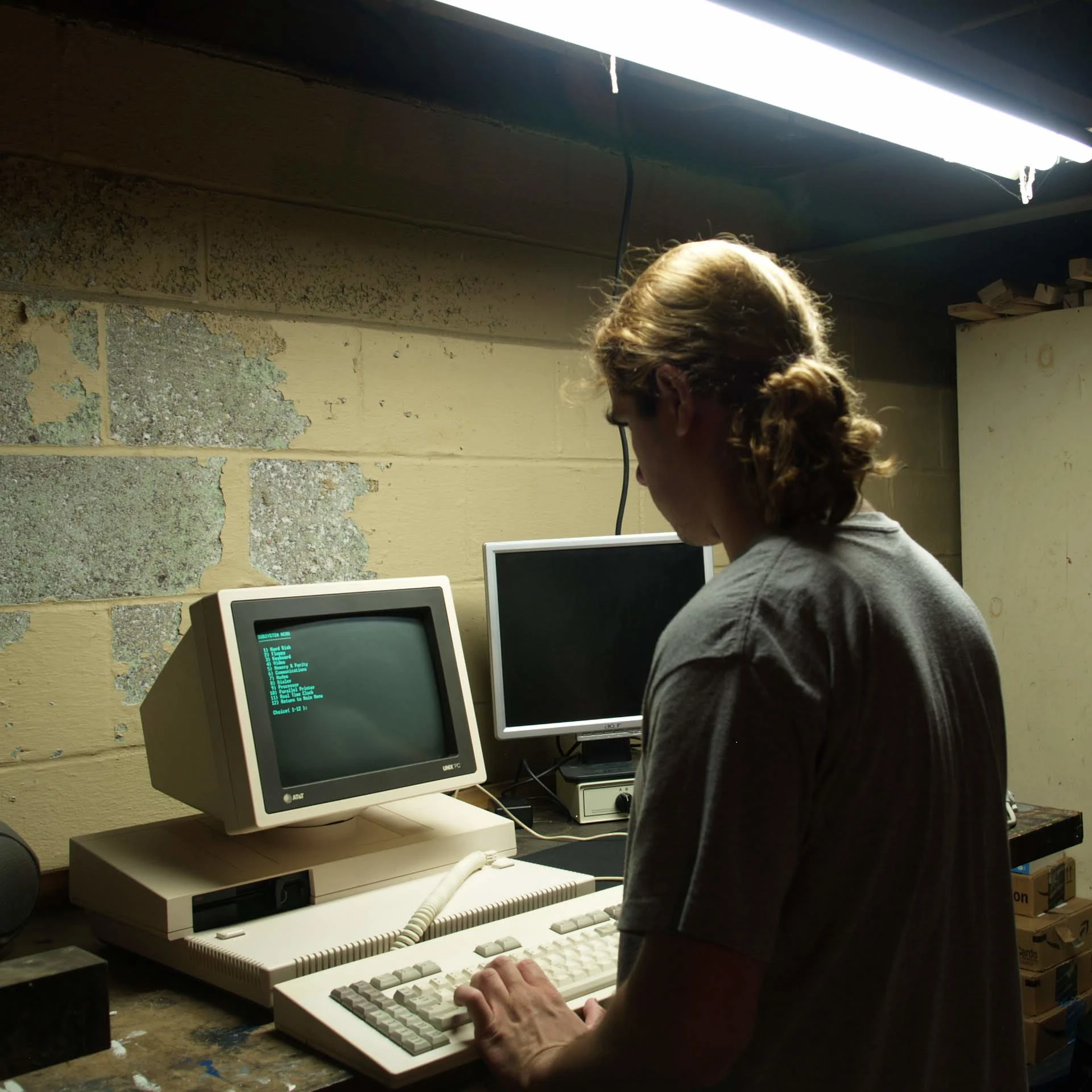Umm annon that was not the wild web. The wild web was in the 90’s and early 00’s. That was truly the wild web.
Nah I think they’re more or less right. I’d maybe pull it back 3 or 4 years, but not as far as 2004.
What killed off the old wild web was the popularity of centralised platforms. Facebook (open since 2006, really started taking off more around 2008/9), YouTube (first video 2005, really takes off from 2007/8), and Reddit (self posts first allowed in 2008), and other things like that which were admittedly great for allowing more people to share their creations with the world, but we’re disastrous for the open web, because they killed off independent blogs, forums, and other smaller websites.
MySpace was huge before Facebook, and it killed off a lot of blogs. Late 90s and early 2000s were truly the wild web IMO. I had a geocities page with its own forum before MySpace made me abandon it due to inactivity.
Webrings, RSS and dedicated blogs and forums were how we got around, Alta Vista would give you 1-2 relevant links eventually (after digging thing keyword spam) and then you’d follow the clues and links from each result and eventually strike gold. It was a skill that gate kept certain areas of the web, but in a good way.
But google was pretty awesome before it enshitification, same with Reddit and instagram (pre Facebook takeover).
We need a good non-profit search engine that can re-open the independent web that’s still there under the spam somewhere. But it sounds about as likely as overhauling the us election system, or reigning in capitalism in any way. Hard and expensive to rich people.
So it sounds like the Internet died in 2008.
I would say it contracted a terminal illness at some point around 2006±1 and went into palliative care in 2008±1, but didn’t fully die for another 5ish years. The death of Google Reader seems a good landmark to use, since RSS was a really helpful tool that became less necessary as sites became more centralised.
Right about with the uprise of the smartphone i guess
When people without computers were let loose onto the web.
Not me browsing this from my phone app, no siree.
It’s true that my original comment was also from my phone haha.
I remember watching saddam hussein hanging video when i was 12, good times
Ah the good old “korn_music_vide.wmv” that immediately cuts to someone in an orange jump suit on their knees.
Korn really getting intense with the new music videos
Ya, I remember the first time I went on rotten and my young mind was not prepared for it. Honestly I miss the good old days when the most shocking thing was lemonparty and tubgirl.
deleted by creator
Don’t forget about the goatse man
No, that one is burned into my eyes forever.
This sounds fucked but my mom actually was showing me these videos lol
Good god lemon.
Oooh I forgot about tubgirl now I’m sad…
Googling CD Keys, Torrents and Cracks was easy back then. DC++ was the way to go and Limewire was not yet Infested with CP and Viruses. There was a sweet spot but only for 2 years. After that, the golden age of Piracy with the File-Hosters came and Reddit wasn’t shit.
If I have to pinpoint the timeframe: When 4Chan got really unironic racist (and the Stromfront forum leaked to the rest)… oh and Facebook…
Oh man, we had DC++ semi-officially endorsed by the inter-college IT department at my university in 2013/14. It was fantastic, especially since in my first year we only got 5 GB of data per month (with a large number of unmetered sites, including anything from Google), so without the unmetered file intranet it’d have been really hard to manage. Unfortunately as they increased the data caps it killed the popularity of DC++, which ended up getting killed off not long after I left.
Too many beheadings in the wild web. But yeah, those years were really the wild web.
“I’m old” vs “I MOLD”
I like the latter more, said like Dr. Weird.
I didn’t realize it was supposed to be “I’m old” until your comment
Same here - and i like “i mold” a lot.
Actually it’s iMold, and electronic jello mold with a touchscreen developed by apple
It only displays the oldest memes while serving some disgusting salad inside the jello
i thought it was L mold, as in the way memes what have gone through a lot of “right click save” cycles have the jpeg artifacts described as mold, and that it was somehow lame
I knew it was “I’m old” just because I remsmber the old Fucki Mold joke…
As a nearly full time internet user since dialup, the web has changed a lot. Dynamic updates to websites is one of the nice things that’s changed. You no longer need to mash F5 to keep up to date on anything. Wifi is way better, though for a while there it wasn’t really a “thing”.
The people have changed for sure. Originally it was a lot of techies and nerds, either by circumstance or due to the efforts needed to make the internet operate. Most people online had similar hobbies and interests, so most people online were similar, and their interests varied only a little on specific things.
Ads were basically a joke. Everyone had a website, usually on Geocities or something. You’d spend hours painstakingly putting together your website, then when you went to other people’s websites, you’d skim over it and never look at it again.
No bots existed, if someone was talking to you, then you probably knew them somehow, or you were on a public forum/IRC. No YouTube, no Netflix, but mp3 file sharing was happening even before Napster.
There wasn’t a lot to do at first, but after you found a few websites you liked, whether Slashdot or fark, 4chan or something else, you were hooked. People were brutally mean, especially for sites like hotornot. No social media or social networks, no corporations, just people mostly. Most sites selling stuff were scams. Early eBay was a trip.
This all morphed into a more congealed mass when social media became a thing and “high-speed internet” was more readily available. WiFi g ERA, back when it was always referred to by the standard, 802.11g. only laptops for a while then the iPhone dropped and it’s been a steady downhill after that.
Now the internet is huge, everyone and their fridge is on social media. Ads are everywhere and worse than ever. Almost everything is trying to funnel you into one of a handful of categories that you don’t fit into to sell you something. A few gems still exist, like the Foss community and stuff like Lemmy.
IDK, the old web sucked in some ways, but was awesome in other ways. Now there’s just too much to keep up on, and unless you spend every waking moment consuming content, it’s basically impossible to do. Some people have staked their entire career on basically aggregating memes and popular stuff, to give an overview to those who don’t have the time to do it themselves.
Media streaming is pretty good, though, media companies keep trying to make it into the next cable TV bundle package, and keep raising the prices and enforcing rules that were not possible 20 years ago, and that sucks.
I’m don’t think that this is better. It’s certainly different, but not better. The way things are going well cause the internet to become a wasteland of AI bots and advertisements all run my corpos because everyone else will be unemployed and unable to find work because their job has been replaced by some AI or other technology that doesn’t cost the corp as much as humans do. I’m sure minimum wage and salaries will be corrected to match inflation right after the majority of the workforce is laid off to be replaced with whatever technology does their job for them, which will create an elite class of super rich (moreso than they already are) who own the company either through shares or by being in an upper management kind of position, and a “middle” class of the people hired to maintain and fix the technology… There will be no lower class, just a massive pool of unemployed people, unable to work because all the jobs have gone to, what is essentially, bots.
My prediction is that when that happens, it will maintain a steady state until the vast majority is living on unemployment benefits, at which point the unemployment system will collapse because the money will run out for it, and either we’ll go into a massive depression, which will set us back 50 years or more, or the entire system will collapse and either we will die off from all the pollution and destruction to the planet, or we’ll have to move to something that’s not capitalism to survive. I’m rooting for a star trek like economy, where your status is determined by reputation, and money no longer exists. Unlikely, but I still want it.
No idea when things will start to shift, but IMO, Amazon (the company) will make the first major move, since they burnout their workers so quickly (specifically in the warehouse and item delivery segment) that they’re already seeing the effects of running out of people willing to work in their warehouses in some areas, and as a consequence of them being unwilling to pay appropriately for the work, and/or afford the workers enough latitude to handle the work without burning out, by either hiring more people to reduce the workload, or give people… IDK, breaks to use the bathroom… They will very likely turn to robots to do the work instead. Once they get to that point, it’s all downhill as other companies will follow suit.
The people have changed for sure. Originally it was a lot of techies and nerds, either by circumstance or due to the efforts needed to make the internet operate
I agree, you had a lot of tech folks. But I think this undersells how many tech-proficient artists you had. Lots of people who knew just enough to get a website off the ground (or just knew who to ask for the answers) and then spent the balance of their time doing music or webcomics or long form prose.
I think the thing that’s strangling the web now more than every isn’t even “AI” or “bots” or “evil foreigners” so much as “sales and marketing people”. They’re fucking everywhere. Filling up my inbox. Spamming my invites list in every form of social media. Blowing up my phone. Grabbing every spare inch of screen space on every commercialized website.
If AI really was just a tool for artists and developers, I am convinced it would be an enjoyable addition to the Internet ecosystem. If the only bots were written by Slashdot and Stack Exchange forum flunkies, we’d have a plethora of useful little scripts and automated tools.
But because everything has to be marketing, and the shit that’s being marketed has to be as high margin as possible in order to capitalize on economies of scale, we are in an endless blizzard of shit I would never want and certainly never asked for.
Just a maelstrom of trash bombarding everyone who isn’t in a cubby hole like Lemmy.
it will maintain a steady state until the vast majority is living on unemployment benefits, at which point the unemployment system will collapse because the money will run out for it, and either we’ll go into a massive depression, which will set us back 50 years or more, or the entire system will collapse and either we will die off from all the pollution and destruction to the planet,
That last bit feels more likely than not, given the degree to which we’re churning up every acre of undeveloped real estate. We’re arguably already past the point of collapse.
But the idea that this will cause unemployment really hinges on the theory that AI can be cheaper and more ubiquitous than human labor. I’ve seen no evidence to support this.
On the contrary, AI is phenomenally expensive and inefficient. It’s a luxury (of sorts) that we’re subsidizing with longer working hours and a lower standard of living.
Modern AI is just another form of massive waste creation. When the bottom falls out of the market, it’s going to have to be one of the first things on the chopping block precisely because it is so resource intensive despite yielding so little
I suspect we’ll create a bunch of revisionist fantasies about how great 21st century AI was, a century from now when we’ve forgotten what it looks like. But in the meantime it’s not going to render us unemployed. It is going to bloat the economy with busy work jobs. Both on the front end fixing all the fuck ups that unmanaged automation creates and on the back end, as we scramble to clean up the mess it leaves behind.
There were plenty of bots, especially on IRC.
The difference is, those bots were useful. They’d send you MP3s, or Warez, or respond to prompts, or just hold down your channel in your absence. Until it got K-lined.
Those bots were good folk. They don’t speak until spoken to.
There were also bots in games which ruined things for the real players… and chat bots that tried to get you to download/install software which was actually a virus. Oh and tons of viruses back then, nothing like today.
Bots in games…like aimbots…I don’t remember being a serious problem. I played a shit ton of Quake and Quake 2 online. Maybe it was a big problem in other games, but I never noticed it.
Yeah there were lots of viruses, but McAfee was a decent program, and they had full versions of their software on their own FTP server that literally everybody knew the password to.
the iPhone dropped and it’s been a steady downhill after that.
Mobile, always on Internet was a game changer.
We are still in a phase of evolution where being networked is not essential, but I expect that to disappear in a generation or two.
That’s not how unemployment benefits work
Depends on where you live.
Unemployment benefits in the US are a short term (usually less than 6months) insurance plan that pays out only under qualified situations. Eg fired and without cause, after having paid into the unemployment system for either a set amount of time or hours. Also, since it’s a temporary payment, people will exit the unemployment system as others enter it - no one can be on it indefinitely. And last, the insurance is paid for by the individual who gets the money - it’s their money.
In my country, Canada, it goes hand in hand with welfare. One will often lead into the other if things go on long enough.
There’s a lot of complexity to it that I won’t get into, but the unemployment system likely can’t handle a rapid influx of new request, even from those that have paid into it.
It appears in Canada, unemployment benefits are indeed an unemployment insurance. In the US, this is paid into automatically from our paychecks, and id assume it’s similar in Canada but I could be wrong.
https://www.canada.ca/en/services/benefits/ei.html
Yes it would be bad if a ton of people went on unemployment, it just wouldn’t work exactly how you’re describing. Unemployment isn’t UBI.
There’s a lot I can say here, but to be terse, the money paid into (un) employment insurance is more than what is paid out normally, since some people will pay for it all their life without ever collecting, that money isn’t just stored indefinitely, it’s used for other things.
As a result, if a large portion of the population suddenly find themselves without work, the system will be unable to sustain itself, whether “short term” or not. All systems that rely on EI overflow funds would suddenly have a deficiency in their money flow, and considering they the people pay most of the taxes while billionaires and corporations get tax breaks so that they pay nothing, the entire social support systems would collapse quickly, as the country plunges further into debt, devaluing the countries currency.
The entire economic model is built upon things maintaining and continuing mostly as they are, pull any thread too far and the whole thing unravels.
you dont miss old roblox, you miss having fun , a Roblox YouTuber
Exactly like this.
Veteran internet people sometimes go on about everything was smaller, different, blah blah blah, but I do always smell some sort of a nostalgia bias in their coments. Sure, there was some things that are better compared to now, but this is normal! Every decade has its ups and downs, and while not everything is perfect, you can’t forget the improvements that happened since then.
We live in an internet.
Anyone has one of those lists? Can we move these memes to peertube or something?

The ancient legendary YT meme that Anon has as his profile pic is Leek Spin by Xyliex, created 18 years ago! I think it also popularized the Levan Polka as a meme song staple long before it’s revival with Bilal the street drummer/cat vibing video.
And luckily it’s already on archive.org so we’ve got one down!
Do not cite the Deep Magic to me, Witch! I was there when it was written.
But they were all of them deceived, for another meme was made. In the land of YTMND, to the music of Three Six Mafia, the Edge Lord forged, in secret, a meatspin meme to troll all others.
And into this meme he poured his cruelty, his malice and his will to dominate all life. One meme to rule them all.
It’s the Ievan Polkka, “Ieva’s polka” where Ieva is a Finnish/Baltic variation of the name Eva.
Mu isamaa, mu õnn ja RÕÕM!!
Mine too (well, not my country but my joy, yes. What a beautiful and chill and foresty country. I miss it immediately when I leave.)
no way, another estonian.
I’m not Estonian, sorry, but I like to visit. It’s a beautiful country. I immediately recognized you by the õ 😄
ok
Profile pic, good one.
I can hear that!
4chan doesn’t have profile pictures. That’s the image anon posted
Kinda sad that it’s almost never mentioned that this is just a scene with Inoue Orihime from Bleach.
https://m.youtube.com/watch?v=8fvTxv46ano
AYBABTU is Lord!
This didn;t aged so well…
Bassboost and deepfrying are already outdated and old memes by now
There is still lots of creative content but because of the sheer amount of people using the internet good content is drowned out by low effort engagement bait.
I feel the same about the early (home) internet (years 1994-1999). Adverts if they even existed on a page were just a few lame gifs on a page. IRC and usenet were the “social media” of the time, except no-one called it that. Almost everyone online was as much of a geek as you (except AOL users), because the hoops to get online were significant enough to keep most normal people away. Businesses were convinced it was a fad, so didn’t get too involved.
It was basically universities, students and a handful of modem owners that could get a TCP/IP stack to work and write a login script (ppp was quite rare in the beginning).
Rose-tinted glasses? Maybe, but there’s a lot not to like about the modern internet.
Stop, you’re making me cry.
I set up one of the first Echomail and Fidonet nodes in my country and was pretty active in the days the internet started. It was such a community effort, and seeing people start to grab hold and use it was a complete rush. To see what it turned into is utterly heartbreaking, but I guess it was predictable.
I see everyone talk about how we need to drive Linux adoption, and I get scared as fuck about what that would mean to Linux in 20 years. I don’t want to see that community vaporize the same way.
I loved the old BBS community. I used to run an Amiga based BBS (also on Fidonet, I would say my node number, but it can still be looked up today, and we used real names so…). One day I had a drive failure and lost pretty much everything. No problem, said another Amiga BBS operator in my city. Bring your new HDD over and we’ll copy over my downloads folder.
I think there’ll always be weird nerds getting excited about niche things. It’s exhausting to have to keep finding new spaces, but to some extent, I think that’s our lot in life: we’re like lyme-grass growing in sand dunes — pioneer species that grow where other things can’t (or won’t), putting down roots so other things can grow.
Unfortunately, the pioneer grasses can’t survive indefinitely in the communities they build; their existence acts as a windbreak and encourages more sand to settle, causing the sand dune to form quicker than they can grow, eventually being smothered by the dunes they helped established. They have to find somewhere else to grow, somewhere new — the sand dune of tomorrow. That’s why, when there’s a series of sand dunes at a beach, you see a sort of progression, moving from more established sand dunes to younger ones as you get closer to the shore.
Maybe in 20 years, Linux will be unrecognisable to us, and maybe that space will no longer be home to nerds like us. But we’ll always find something new to be excited about; the community won’t be vaporised, it’ll just be rejigged a bunch, as we discover new areas to put down roots. That is sad, but I think the alternative would be sadder, in a way. I don’t mean if Linux doesn’t become widely adopted, but if people stop trying to push for that — at the core of this movement/community is a bunch of people saying “hey, look at this really cool thing I care about”.
It’s easy to blame the Marram grasses for crowding out the early pioneers, but we do this to ourselves, by building tools for others to use, and working on outreach. In a way, that’s how we survive, because our community relies on people who are excited about building something new in an unexplored problem space; more gatekeepy communities may maintain their “ideological purity” for longer, but they inevitably die out.
It sucks to feel crowded out by the masses, but there’ll always be new spaces for people like us, because we’re good at building and tinkering. After all, look at where we are right now. Lemmy isn’t especially radical or new, but the atmosphere here is incredibly different to Reddit. I’m way more likely to find thought provoking discussions like this thread, for example, and to care enough to write comments like this.
Amateur radio is still somewhat like this, but nothing like it used to be. That used to be the ultimate nerd hobby. My dad was a ham and I eventually got my license, but I don’t find it anywhere near as fascinating anymore. But it was the original opensource project, and you used to share info on the hobby over the airwaves coming out of the machine you built by hand.
Bill pay. Maps. Wikipedia. Every Song Ever. Every Movie Ever. Every re-run ever. Almost all the games. Communication about weird hobbies with people across the globe. Email your favorite author or artist directly. Free e-books from 5000BC to 1935 AD. Online tickets for travel. Online shopping. Podcasting. Online music collaboration.
Postal mail still a thing.
There is a lot to like about the contemporary internet. Perhaps people are less grateful now.
“every re-run ever” - except when streaming platforms decide to delete stuff forever arbitrarily, because they give zero shits about preservation.
That’s what piracy is for
Just download it then! I just got Infinity Train!
Well. I think it might be worth checking again what I wrote. I was quite clear in that I said there’s a not lot to like, not that there’s nothing to like. If I didn’t get anything from the modern internet, I’d not be here posting these comments.
I’d like to pull you up on the point about free e-books. Project Gutenburg was in its second decade by the time most home users got online. So that’s hardly a contemporary internet exclusive, it’s almost as old as the internet itself. Also, communication about weird hobbies is certainly not unique to the contemporary internet. We just did it on open services not controlled by corporate entities. Corporates that only run the service in order to sell your data.
As for a few of the things I don’t like? Well. Ads everywhere (including those containing malware), constant hacking attempts for anyone running a server (ssh/sip/www very commonly hit with some protocols getting 100+ hits per second), AI crawlers scooping up the whole internet without any care about how they impact transit fees or user experience, licensed purchases (streaming services, games, etc that can be taken away at a moments notice with zero recourse for the user), terrible user agreements for EVERYTHING especially regarding privacy with no way to reject since ALL companies offering similar services have the same damned agreements, subscriptions on everything everywhere and increasingly so, having to click to reject cookies everywhere and knowing they’re still building a profile about me whether I like it or not just in order to throw more adverts my way.
Dude in that era accessing the internet was incredibly easy.
Most big ISPs had floppies or CDs you could take (for free!) that included their software (for Windows, at least) that pretty much did everything.
After Windows 95 came out, with Dial-up Networking right out of the box, the ISP software was no longer needed. There were instructional documents, and if you could follow directions, you could get online pretty easily. This made it a lot easier for small independent ISPs to start up.
That’s what we need again. The independent ISPs. It was easy for them then because the phoneline pulled double-duty. I do wish we could do that again…separate the infrastructure from the provider, have a municipal fiber provider and a free-market for Internet services over the fiber.
People don’t know how to follow basic directions though. I don’t know if that’s a recent phenomenon or not. I’m nearing 40 (and rather cynical), but still feel I’m too young to really remember what it was like in the before-times.
What got hard was trying to get your modem working in Linux. Especially if you were unfortunate enough to have bought a Winmodem.
AOL did, and the others that were easy (compuserve etc) provided their own limited interface to a curated Internet.
Most providers (at least here in the UK) that provided actual tcpip did so using slip and a login screen. Which generally needed a script to login and then chain on slip to connect it to the local stack.
It wasn’t until 1998 or 1999 there was widespread use of ppp and the windows 98 dial up networking could get you straight in. Then in the UK we had services like freeserve which provided simple ways to connect.
I do wish we could do that again…separate the infrastructure from the provider, have a municipal fiber provider and a free-market for Internet services over the fiber.
What is absolutely hilarious about this is that most European countries have this as well as a lot of other countries. It’s just the US that is overrun by corporate owned broadband.
Doesn’t even have to be municipal…I’d settle for a strongly regulated public/private partnership…but really nothing we have now works.
Around here, our electric service is kind of like that. You have your supply (the energy provider) and your distribution (the wire owner). We can choose our own supply but we have to have the distributor that’s in the region. There’s some good suppliers but there’s also a lot of scams.
That’s the closest analogy we have currently to what I’m talking about, but still not quite perfect, since as far as I’m aware the electric supply thing is more like a group-buy of bulk energy and weird business math.
Bruh if you lived in a rural area you might have not got dial-up until the mid 2000s
I can’t believe thanks to the internet undergoing enshittification I’m actually nostalgic for a time when it was casually racist, because that’s somehow better then this “Watching the words that we say, big brother corponet is listening.” bullshit
Somehow the bigotry of the old not-for-profit internet felt less harmful than the current model where corporatations fund bots to fuck everyone in the mental health for a grab at our empty wallets.
Back then the bigotry were mostly jokes than actual serious unironic targeting which you see festering nowadays.
A lot of it was ironic “It’s funny because we know it’s fucked up and wrong, if we legitimately agreed we wouldn’t think it was funny.”
Yeah, like a lot of racist humour in old british comedy shows is generally at the expense of the racist themselves, rather than who they’re mocking
Back in the YTMND days I was among the “Moon Crew”, people who made fads (what we called memes back then) about Moon Man. (The overtly racist version of the Mac Tonight character)
If I had known Moon Man would go on to be a symbol of the Alt Right, I’d have never had anything to do with the character.
Back then the joke was “Lol, Moon Man is completely insane and wacky.”, but in more recent Moon Man material the joke changed to “Moon Man is based cause he hates women and minorities.” and no one originally involved with how the character was back when he was a staple of YTMND has anything to do with it anymore.
No one actually had any support for the KKK, the chant just sounded funny on the old version of AT&T’s text to speech
And when Moon Man was involved in storylines the villains were usually folks like Charles Moonington (An undercover terrorists pretending to be a member of high society) or Goofy Clown Face (an unapologetic pedophile) who were demonstratably worse than Moon Man.
Now when I see the character he’s unironically supporting Trump, and actively battling against Sun Man (who in the original canon we made for the character was a self-hating black man who the “Three K Mafia” had to have around due to anti-discrimination laws requiring at least one black guy in the klan)
Moon Man was also shown as being clueless and out of touch with reality, because again, a major part of the character was that he was insane and not meant to be imitated.
It just pisses me off that he became a recruitment tool for Bigoted Movements, when again, he was largely satirical and meant to mock such backwards views. I mean shit, Moon Man’s “songs” were largely specifically parodies of and homages to famous rap musicians, that should have been a big clue right there that no one involved with the character’s inception actually hated black people. (That’s actually how I discovered Tupac, look this was like 15 years ago, I was an edgy teenager back then)
It makes me fully understand the pain Anthony Starr feels when he gets those fan letters about “What a good American Homelander is”, or how that guy who wrote that one comic felt when he had to kill off Pepe…
I was more thinking of the time people said the n word ironically, rappin for jesus and that guy who made that song about black people liking watermelon and kfc, as well as similar songs about white people, asians and arabs. My theory is that Etika’s death killed ironic usage of the n word along with PewDiePie’s bridge incident
I mean I kinda was too, no one was actually racist, it was just a gag… Instead of being a Alt-Right Nazi pretending it’s just a joke.
The Internet didn’t so much get less racist as it simply got sanitized because they realized that they weren’t extracting maximum dollar from non-white users. The hate simply got pushed further down into the dank miserable depths to fester while the rest of us get to pretend that racism isn’t still a massive problem because black people are a marketing demographic now…
Fun thing is that because of that, you could theoretically live you entire Internet life without ever encountering racism. Only theoretically though, because racism still happens everywhere casually.
I’ve always said the best type of media on the internet is almost no moderation because that means anyone can post anything.
People who post stupid or nonsensical things would just get ignored anyway, there’s no need for a mod tram to dictate what can and cannot be posted online. They should only exist to remove spam or brigading.
The wild west internet was great at this, we got some of the coolest communities and memes from all over the world.
Right around MySpace falling off, Facebook started agregiously taking over the majority of social media. Lots of forum sites are now dead or empty.
I wish we could use the dragon balls to revive forums.
That sounds like paranoia sir.
There’s plenty of new good stuff on youtube still. Just a lot more junk as well
We can make it anew! I feel like Activitypub and federation has given us the tools to revive the old internet, made by our own hands.
I’m working on a decentralised sharing protocol, so that anyone can have their own website, I just have to find some people interested in testing it out 😊
That sounds super interesting! Can you link me/tell me how that works networking wise at a high level? I’ve been poking at a number of distributed compute and decentralized software lately just because every single one has its own unique solutions to the various chicken/egg problems that decrentalization pose
Okay, so in the most simple way, the protocol is based on “I share yours, and you share mine”.
That means you run a little node connected to the internet, sharing other peoples “things” (it’s all encrypted so you don’t know whatever it is) and their nodes share your website. Add oversharing (you share say 10 different data from 10 different nodes, and they all share yours) and you have a robust presence too.
You can then share your website with a simple link.
I say website but you can share whatever you want, daily information, backup things, your holiday photos, anything really.
You can check it out on https://tenfingers.org (some more technical information can be found in the whitepaper available there too). There is a fully functioning implementation BTW.
Would you mind sharing what those chicken and egg problems are? To see if I navigated them well :-)
If you have any questions, I’ll be happy to do my best to answer them ofc.
Awesome name! And even more awesome concept! Will test it out first chance!
Thank you!
I set up a sub at lemmy.mindoki.com/c/tenfingers if you want to share how it went… Or if you have questions and whatnot ofc :-)
The internet is now just a bunch of segregated echo chambers.
It always was in a way. In the early days only people with interest in the technology went online. Then, in the forum era, people found their communities and stuck with it. Only because of the rise of social media were suddenly all people on the same few platforms, which is now naturally splitting apart again into groups, subs, feds, etc
I feel like there’s some amount of nostalgia filter here.
Nah the first time I saw Leeroy Jenkins and some of the Habbo pool stuff I was genuinely laughing my ass off. Nothing gets me that high anymore.
People comparing the hits of yesteryear to the norms or even lows of today is a thing.
Back in the day, nostalgia was better
People thought the old memes were good?
People liked deep fried memes?
Whaaat?
Jesus Christ how young are you that deep fried memes are “old”??
Jessi Slaughter and many others.
I know that flash animation alone was a HUGE part of the old internet. At least there is an archive for some of them called “flashpoint”.
Flashpoint is awesome. Makes me feel old to go back and watch old flash (and even shockwave) animations!
my knees hurt
Luckily for me it’s just my right big toe knuckle.



























